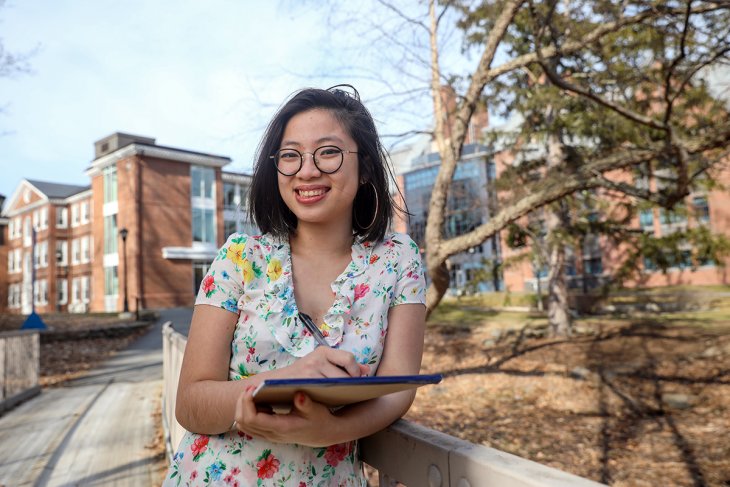Mai Hoang

“I had to find a way to exert my voice.”
When Mai Hoang was 13, there was a devastating toxic chemical spill in her native Vietnam. It spanned four provinces and killed 70 tons of fish that washed up along 125 miles of coastline.
Distraught, Hoang wanted to do something. When she heard whispers that a group of her English Center classmates and teachers were going to protest the government’s inaction, the nascent climate activist pushed past her fears and joined the group carrying banners that asked questions and demanded a response.
The event changed her life. “I remember walking past a row of police and being really scared,” she says. “But it showed me that I have a voice.”
Budding activist
Protesting the environmental damage caused by the Formosa Ha Tinh Steel Corporation was the start. Journalism would come a year later, after she arrived at Exeter. “I had to find a way to exert my voice beyond the street,” Hoang recalls. “I see fact-based climate journalism as a form of activism.”
Hoang began to pitch stories to Vietnam’s leading newspapers — all government-run — from her dorm room in Amen Hall as a lower. One of her first published articles was about a planned expansion of a $5 billion thermal power plant in the southern province of Long An. Hoang’s piece shed light on the ways the plant’s growth would increase emissions and have devastating effects on the residents of the region as well as the environment. “I had to keep my sources anonymous,” she explains. “I know that this is dangerous journalism, but the alternative — to stay quiet — is not an option.”



